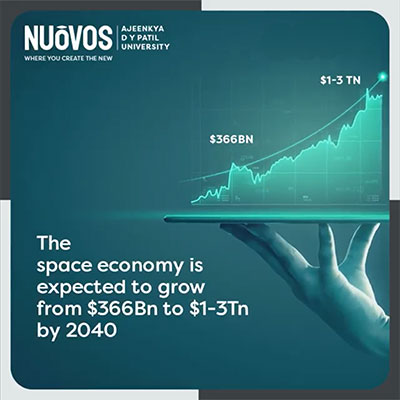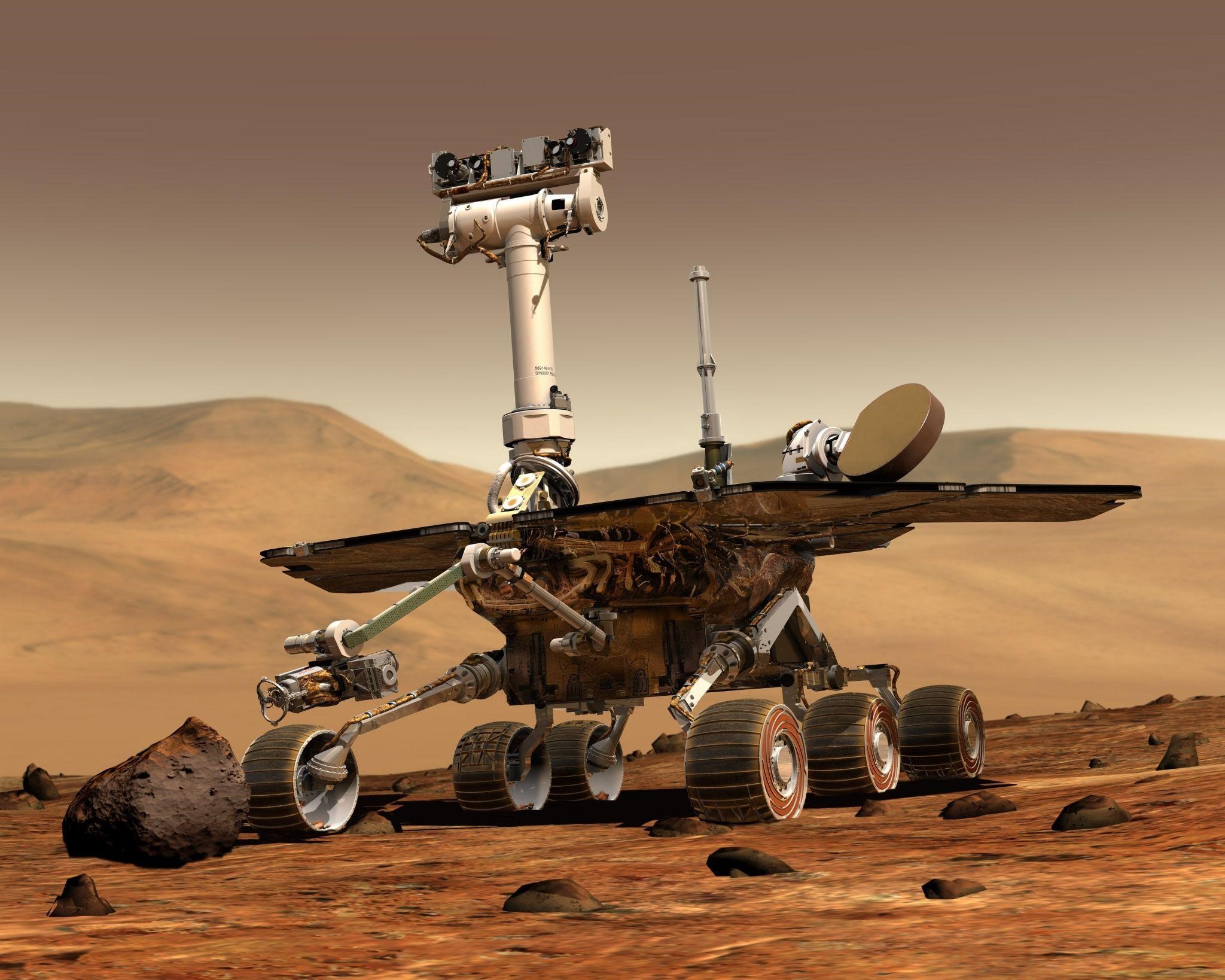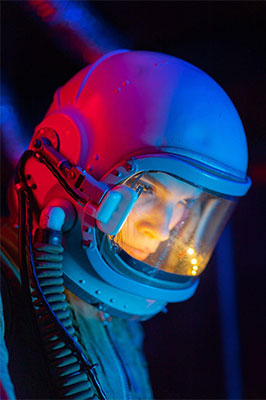A career in space technology is ripe for the picking if you are the kind who is fascinated by the unknown and can think outside the box to solve problems. The current state of space technology is extremely important to human existence. This specific piece of technology saves thousands of lives every year through early warning systems for natural catastrophes, weather forecasting, and climate monitoring. The field of space technology is devoted to cosmic research. This area of research is mostly done to help with space travel, satellites, space technology innovations, and exploring space. Aeronautical Engineering or Aerospace Engineering are two most common subjects of expertise one needs to master to be successful in the field of space science.
This article will focus on three areas:

Space technology is developing quickly, making science fiction a reality. Space agencies invest more in research and innovation. Private companies like SpaceX and Blue Origin are racing to create cutting-edge space technology by launching private space trips and preparing for the first commercial space travellers. Considering the industry’s unceasing growth, the outlook for space exploration is more promising than ever. Human space flight and a space colony are intriguing space technology prospects. SpaceX, MarsOne, India’s private space pioneers like Aadyah Aerospace and Bellatrix Aerospace, and other private corporations have announced space missions and innovations. Blue Origin is testing reusable rockets that might lower interplanetary travel costs. Astronomers discover new stars, planets, galaxies, and more to learn about the universe’s origins. Modern space travel seeks alien life and beneficial minerals.
Space exploration has grown more economical and efficient owing to technological advancements made possible by new ideas and discoveries. Space flight will aid climate studies and Internet speeds. Space shuttles and rockets might transform human transportation. Space-based Hyperloops might link Earth’s remote places. Travelling at hypersonic speeds would cut the time it takes to get from New York to London to only one hour, with no stops required for fuel or refuelling. Space exploration will be felt far and wide with so many industrial items needed for space shuttles and rockets. Space exploration software development requires a wide variety of talents and expertise. Artificial Intelligence (AI) and Machine Learning (ML) should drive space exploration. New corporations are making space research and exploration more competitive and cutting-edge. To be competitive, organisations must learn how to employ space technology to its maximum potential and adapt to shifting trends.
ISRO and NASA’s technological advancements, originally developed for the purpose of venturing to uncharted territories, are increasingly being used in more mundane contexts. Many innovations developed to facilitate and improve space travel are now commonplace in people’s homes. Space research and technology for use in space travel have given rise to inventions such as the handheld vacuum cleaner, the blanket, and invisible braces. Cardiac pumps, prosthetic limbs, the World Wide Web, and camera sensors are just some of the other innovations that have their roots in space exploration.

Space agencies have developed a plethora of technology to enhance space travel and shuttle communications. When NASA made its discoveries and innovations available to the public, innovators began adapting space technology for use on Earth. The knowledge you get in an Mtech program, such as Orbit Mechanics & Mission Planning, Systems Engineering, Spacecraft & Payload Design, Launch Vehicle Design, Computational Engineering-CFD, FEA, and Space Electronics Engineering, may be applied to the advancement of consumer technology.
Some examples of such applications of space technology in the real world are:
Space agencies designed embedded web technologies so international space station (ISS) experiments could be overseen remotely. The Internet of Things (IoT) arose when web technology became public. Using IoT, you may connect your electrical devices to the web. Take Google Home, a wireless speaker that functions as a PDA. Wearables, linked homes, and cities use IoT. IoT could change your business by making the customer experience better, making operations more efficient, and creating new business models.
Eric Fossum, a NASA space scientist, studied ways to shrink orbital cameras. Eric Fossum spent a lot of effort improving the CMOS (Complementary Metal Oxide Semiconductor) image sensor used in satellites and spacecraft for getting visual images or videos from outer space. Fossum created CMOS active pixel sensors using charge-coupled device (CCD) technology. When they became commercially accessible, the same technology changed digital photography. Individuals for personal and commercial reasons mostly use DSLR cameras. The technology is found in most smartphone cameras and GoPro action cameras we see today.
Several space organisations have launched satellites to examine Earth. GPS is a satellite application (GPS). GPS lets you pinpoint your location anywhere on the globe. Google Maps uses GPS networks extensively. GPS can help in the functioning of autonomous automobiles when paired with AI and ML. Sensors can help cars drive safely by themselves. A self-driving tractor may utilise GPS to irrigate, fertilise, and harvest crops.
Satellites in Earth’s orbit send and receive data from devices. Mobile phones and the Internet, which use satellite signals, have changed how we communicate and get things done. Thanks to mobile technology and the Internet, individuals throughout the world can readily communicate. Internet speeds are expanding quickly, with 5G predicted to provide 1 Gbps speeds. The Internet will become increasingly beneficial in commercial contexts as it gets quicker and cheaper. Internet services are utilised everywhere, from financial data to college applications.

RotoSense, a rotating vibration sensor developed by NASA’s Subsonic Rotary Wing Project, may detect impending transmission problems in rotorcraft. RotoSense is monitoring the train’s axle vibrations in order to locate rail defects. A business in Tennessee has adapted RotoSense into RailSafe, which keeps tabs on wheel condition to foresee potential issues and breakdowns. RailSafe has decreased maintenance costs and increased rail safety.
3. Career Options in the Space Industry for an M.Tech in Spacetech Graduate
Space technologists have several opportunities. Weather forecasting, remote sensing, satellite TV, and long-distance communication are popular disciplines. ISRO and NASA are continually looking for competent space experts as well as private space firms like SpaceX have opened even more doors for professionals in space technology innovations. Any space technologist worth their salt would be honoured to work for the booming future of the space sector, where private sectors are making remarkable innovations in this field and demand for commercial space travel is also coming to reality in the future.
The development of space technology is both interesting and difficult. Those with a natural inquisitiveness about the cosmos and a desire to learn more about it have the potential to become astronauts. They must go through extensive training and pass a series of fitness tests before being considered for this position. If you are one of those who love to investigate the secrets of space and have exceptional problem-solving abilities, then a career in space technology is tailored for you.

Wrapping-up
Space technology requires critical thinking. Strong analysts can tell if a new technology will aid space missions. Space technology relies on researchers exchanging ideas and information. A teammate may dispute another’s idea. When everyone’s heard, the mission begins.
Launching rockets is increasingly more economical owing to cutting-edge technology and ISRO Mangalyaan’s success, which bodes well for commercial spaceflight and relaxing space vacations. Freeze-dried food and portable cordless vacuum cleaners are products of space technology. Space research centres like ISRO and NASA, as well as data science firms like Amazon, LinkedIn, and Walmart Labs, are among the most prominent employers of space technologists. ISRO also hires aeronautical engineering M.Tech. Program graduates. They are also given complex tasks to complete. Some of the private pioneers in space technology in India, such as Aadyah Aerospace, are industry partners with ADYPU. Helping students gain knowledge and hands-on experience in space innovation and research. In Space Technology, there are jobs for space scientists, plasma physicists, aerospace engineers, avionics technicians, space data scientists and researchers.

MBA Pro is a global MBA designed for recent graduates and experienced professionals seeking international career advancement opportunities. 

Just as the circulatory system is vital to the human body, the finance sector is the economy's lifeblood. Technology and innovation are the driving forces behind rapid advancements in finance.

Is rapid advancement giving you FOMO? Do you have thoughts about transitioning into a whole new field? Look no further because we got you!